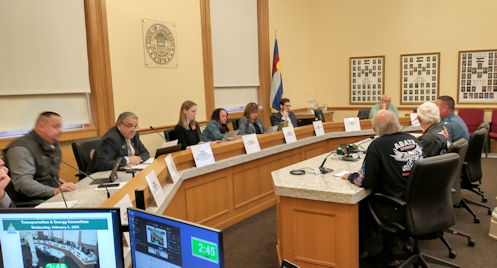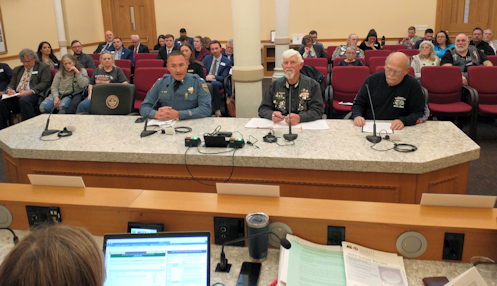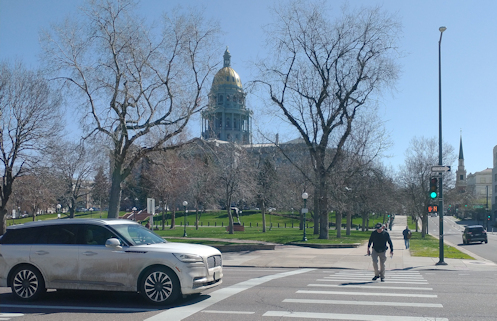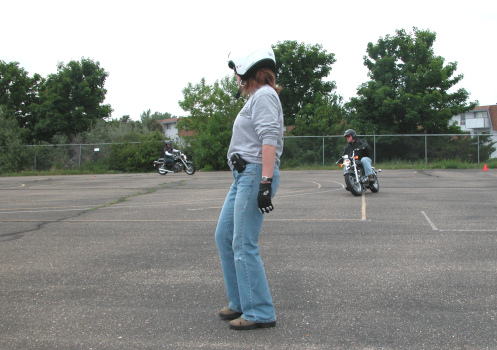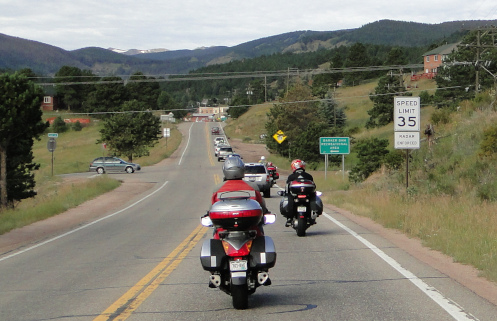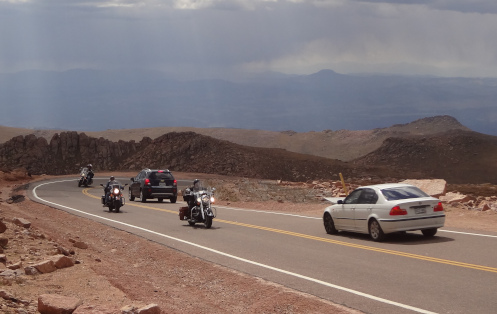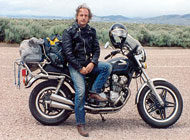MOST Hearing Is Wednesday
Monday, March 17th, 2025If you think the money you pay each year to enhance rider safety should be spent to defer costs for rider training the time to contact your legislative representatives is now. A hearing will be held Wednesday afternoon for the re-authorization of the Colorado MOST (Motorcycle Operator Safety Training) program. The hope is to have the simple re-authorization bill amended to mandate that the money–at least some of it–be used in that manner. I mean, come on, “Training” is in the name. Putting up road signs that say “Motorcyclists use extreme caution” does not constitute training in anybody’s book.
The word from Stump, ABATE of Colorado’s legislative liaison, is that there’s no good way to know when in the afternoon the bill will come up, but it would be good to have at least a few interested members of the public on hand to testify. ABATE members will presumably be there so that base is probably covered. The other thing that matters–what you can do, and should do if you care about this–is to immediately contact your reps to let them know what you want them to do.
This hearing is with the Senate Transportation and Energy committee. Here are the members who need to be contacted.
Faith Winter (Chair) — 303-866-4863 — faith.winter.senate@coleg.gov
Lisa Cutter — 303-866-4859 — lisa.cutter.senate@coleg.gov
Marc Catlin — 303-866-5292 — marc.catlin.senate@coleg.gov
Tony Exum — 303-866-6364 — tony.exum.senate@coleg.gov
Nick Hinrichsen — 303-866-4878 — nick.hinrichsen.senate@coleg.gov
Kyle Mullica — 303-866-4451 — kyle.mullica.senate@coleg.gov
Byron Pelton — 303-866-6360 — byron.pelton.senate@coleg.gov
Cleave Simpson — 303-866-4875 — cleave.simpson.senate@coleg.gov
Tom Sullivan — 303-866-4873 — tom.sullivan.senate@coleg.gov
Stump provided a little background on what’s going on. Here’s part of it:
Also related to our bill, Larry (Montgomery–ABATE’s state director) and I met with Chris Corbo (MOST Director) this week to express ABATE’s concerns with the program. He actually requested the meeting because he said he’s been getting inquiries from Legislators about the MOST Program. The hour and a half meeting was MOSTly good (excuse the pun) but a lot of his answers were, “You have to ask MSF about that.” He conceded that the 9 years till the next sunset review is too long and should be 5 years. He also gave reasons (excuses) why there shouldn’t be subsidies: too much paperwork, too much time to write checks, need another person to do the extra work, abuse by vendors, etc.
So it’s “too much trouble” to do what the program was set up to do. At least this shows that people have been contacting their reps and the reps are pursuing the matter. That’s good news.
Biker Quote for Today
Like dogs, motorcycles are social catalysts that attract a superior category of people.
